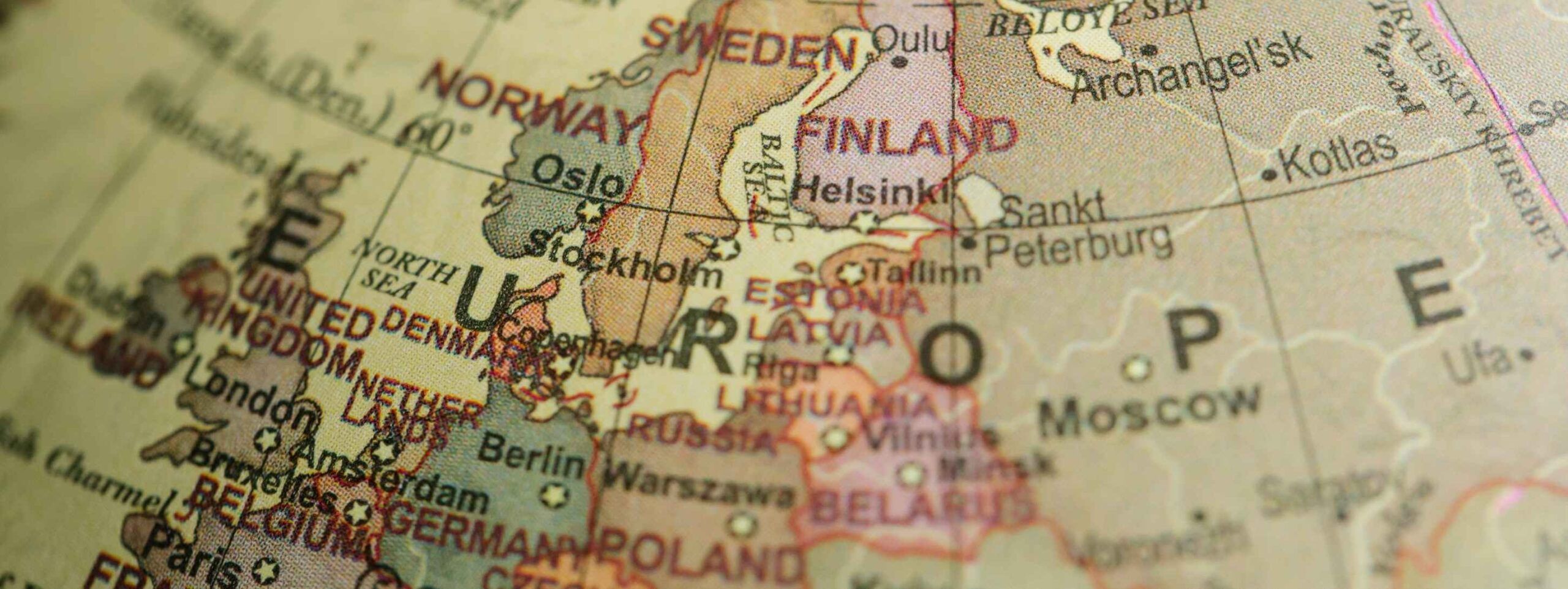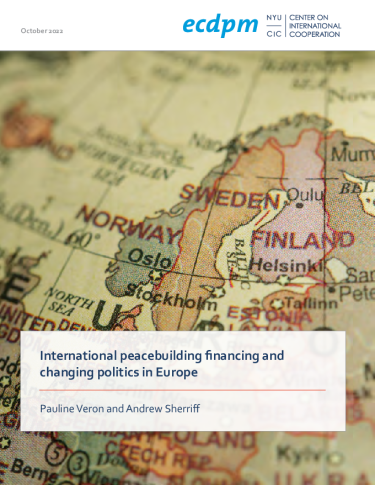Official Development Assistance (ODA) from European countries and the EU institutions has been a large and important source of grant funding for international peacebuilding over the last twenty years. It will continue to be an important source of funding for international peacebuilding in the likely absence of comparable other sources of financing for the next twenty years. Yet competition for allocation of public funds is fierce in the wake of the economic and social disruption caused by the pandemic, an ongoing global climate crisis, significant inflationary pressures, and an impending economic recession as well as fallout from the war in Ukraine.

While globalization has increasingly challenged the distinctions between internal and external policy, the political and bureaucratic momentum for significantly greater social and economic external spending, even in the wake of the pandemic and climate crisis, has proven very difficult to mobilize in Europe, the United States, and the Global North more generally. The most recent and keenly-felt exception in terms of increased external spending is on defense, which has recently been subject to dramatic pledges of increases in Europe in the wake of the Russian war in Ukraine. More broadly, in much of Europe, a more openly self-interest-driven narrative is affecting not only foreign policy, but also development cooperation and international spending including ODA. Also, there has been increasing criticism of existing approaches to ODA and international financial support for peacebuilding including from within the peacebuilding community. It is against this background and these dynamics that a case for supporting international peacebuilding has to be made in Europe.
Supporting international peacebuilding is a domestic political and senior bureaucratic choice. International norms and globally agreed targets or the specific needs of conflict countries and communities seemingly have limited influence on European and US government financing decisions. Geopolitics and domestic politics have more significant impact.
This paper provides some recommendations for the peacebuilding community to consider when making the case to sustain and improve the quality of peacebuilding support, with a particular focus on ODA from Europe. It focuses on short- and long-term actions needed to undertake the difficult task of strengthening and sustaining a political constituency for peacebuilding in the face of significant political headwinds.
This includes:
- building a broader and more influential constituency to support international peacebuilding within Europe;
- embedding peacebuilding advocacy within other important foreign policy agendas;
- finding the appropriate moments and fora to make the case and influence policy.
Read the full policy brief: International Peacebuilding Financing and Changing Politics in Europe


